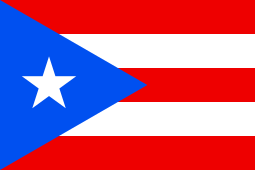2019 FIVB Volleyball Women's Challenger Cup qualification (NORCECA)
The North American section of the 2019 FIVB Volleyball Women's Challenger Cup qualification acts as qualifiers for the 2019 FIVB Volleyball Women's Challenger Cup, for national teams which are members of the North, Central America and Caribbean Volleyball Confederation (NORCECA). This tournament was held in Sportplex Beau-Chateau, Quebec, Canada. The eventual winner will earn the right to compete in the 2019 FIVB Volleyball Women's Challenger Cup.[1][2]
Qualification
The participating teams are the host plus the top three ranked teams of Norceca not qualified to the FIVB Nations League as of January 1, 2019.
| 2019 FIVB Challenger Cup NORCECA qualifiers | |
| 2019 FIVB Nations League eligible team | |
| Withdrew |
| NORCECA | FIVB | Team | WC 2015 | OG 2016 | WGP 2017 | WCH 2018 | Total |
|---|---|---|---|---|---|---|---|
| 1 | 3 | 80 | 80 | 38 | 58 | 256 | |
| 2 | 10 | 30 | 3 | 30 | 45 | 108 | |
| 3 | 13 | 0 | 20 | 14 | 36 | 70 | |
| 4 | 18 | 0 | 2 | 12 | 30 | 44 | |
| 5 | 21 | 0 | 0 | 2 | 33 | 35 | |
| 6 | 25 | 5 | 0 | 0 | 25 | 30 |
Qualified teams
4 NORCECA national teams entered qualification by FIVB Rankings.
.svg.png)



Pool standing procedure
- Number of matches won
- Match points
- Sets ratio
- Points ratio
- Result of the last match between the tied teams
Match won 3–0: 5 match points for the winner, 0 match points for the loser
Match won 3–1: 4 match points for the winner, 1 match point for the loser
Match won 3–2: 3 match points for the winner, 2 match points for the loser
Round robin
- Venue:
.svg.png)
- All times are Eastern Time Zone (UTC−04:00).
| Qualified for the 2019 Challenger Cup |
| Rank | Team | Matches | Pts | Sets | Points | |||||
|---|---|---|---|---|---|---|---|---|---|---|
| W | L | W | L | Ratio | W | L | Ratio | |||
| 1 | 2 | 0 | 10 | 6 | 0 | MAX | 150 | 108 | 1.389 | |
| 2 | 1 | 1 | 5 | 3 | 3 | 1.000 | 136 | 122 | 1.115 | |
| 3 | 0 | 2 | 0 | 0 | 6 | 0.000 | 94 | 150 | 0.627 | |
| Date | Time | Score | Set 1 | Set 2 | Set 3 | Set 4 | Set 5 | Total | Report | ||
|---|---|---|---|---|---|---|---|---|---|---|---|
| 31 May | 18:00 | Puerto Rico | 3–0 | | 25–20 | 25–12 | 25–15 | 75–47 | Report | ||
| 1 Jun | 18:00 | Canada | 3–0 | | 25–14 | 25–16 | 25–17 | 75–47 | Report | ||
| 2 Jun | 14:00 | Canada | 3–0 | | 25–21 | 25–20 | 25–20 | 75–61 | Report |
References
- "FIVB Volleyball Challenger Cup Qualification". NORCECA. 6 March 2019.
- "FIVB Volleyball Challenger Cup Qualification teams confirmed". NORCECA. 31 May 2019.
_pictogram.svg.png)